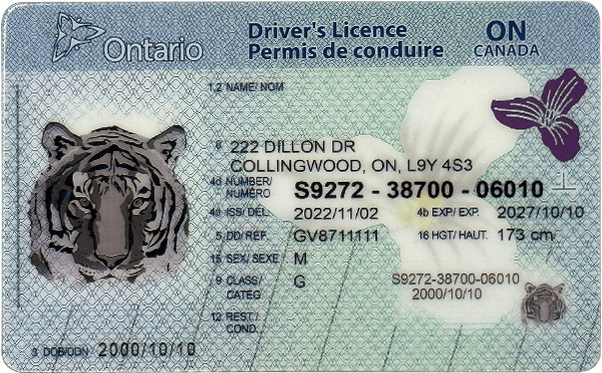When an individual is convicted of a crime related to a fake driver’s license, the question of whether they can appeal this conviction often arises. Understanding the appeal – process is crucial for those who believe there were errors in their trial or conviction.
What is an Appeal?
An appeal is a legal process by which a defendant requests a higher court to review the decision made by a lower court. It is not a new trial in the traditional sense but rather a review of the legal procedures and decisions made during the original trial. The purpose of an appeal is to identify and correct any legal errors that may have affected the outcome of the case.
Grounds for Appealing a Conviction Related to a Fake Driver’s License
There are several potential grounds for appealing a conviction in such cases:
- Errors in the Admissibility of Evidence: If evidence was obtained illegally, for example, through an improper search and seizure, it may be grounds for an appeal. In the context of a fake – driver’s – license case, if the police searched a suspect’s property without a proper warrant and found the fake license, this evidence could be challenged on appeal.
- Jury Misconduct: If there was any form of misconduct on the part of the jury, such as a juror being influenced by outside information or not following the judge’s instructions, it can be a basis for an appeal. For instance, if a juror conducted their own research about fake driver’s licenses during the trial instead of relying on the evidence presented in court.
- Improper Instructions to the Jury: The judge is responsible for giving accurate and complete instructions to the jury regarding the law applicable to the case. If the judge provided incorrect or incomplete instructions, and this could have affected the jury’s decision, it may be grounds for an appeal. In a fake – driver’s – license case, if the judge failed to properly explain the elements of the crime, the defendant may have a valid appeal.
- Ineffective Assistance of Counsel: A defendant has the right to effective legal representation. If it can be shown that the defense attorney’s performance was so deficient that it prejudiced the outcome of the trial, it can be a ground for appeal. For example, if the attorney failed to challenge key evidence or did not present a proper defense strategy in a fake – driver’s – license case.
The Appeal Process
The appeal process generally involves the following steps:
- Filing a Notice of Appeal: The defendant or their attorney must file a notice of appeal within a specified time limit. This time limit varies by jurisdiction but is typically short, often ranging from 30 to 90 days after the conviction.
- Record Preparation: The lower – court record, which includes transcripts of the trial proceedings, exhibits, and other relevant documents, must be prepared and sent to the appellate court. This record forms the basis for the appellate court’s review.
- Briefs: Both the appellant (the party appealing, usually the defendant) and the appellee (usually the prosecution) file written briefs. The appellant’s brief outlines the legal errors they claim occurred during the trial and why the conviction should be reversed. The appellee’s brief responds to these claims and argues that the conviction should be upheld.
- Oral Argument (Optional): In some cases, the appellate court may schedule an oral argument. During this argument, the attorneys for both sides present their positions to the judges and answer questions from the bench. This provides an opportunity to clarify points made in the briefs.
- Decision: The appellate court will review the record, briefs, and, if applicable, the oral arguments and then issue a decision. The court may affirm the conviction (uphold it), reverse the conviction (overturn it), or remand the case back to the lower court for further proceedings, such as a new trial.
Challenges in Appealing a Fake Driver’s License Conviction
There are several challenges that defendants may face when appealing a conviction related to a fake driver’s license:
- High Burden of Proof: The appellant has a high burden of proof to show that legal errors occurred during the trial. They must demonstrate that these errors were significant enough to have affected the outcome of the case. This is not an easy standard to meet.
- Time Constraints: The strict time limits for filing an appeal mean that defendants must act quickly. Gathering the necessary evidence and legal representation to support an appeal within a short time frame can be difficult, especially for those who are already dealing with the consequences of a conviction.
- Costs: The appeal process can be expensive. Legal fees for attorneys who are experienced in appellate work, as well as costs associated with obtaining transcripts and other documents, can add up quickly. For many defendants, these costs may be a significant barrier to pursuing an appeal.
Common Problems and Solutions
- Problem: Lack of Knowledge about the Appeal Process
Many defendants are unaware of the specific steps involved in appealing a conviction. They may not know about the time limits for filing, the types of evidence needed, or how to prepare a strong appeal.

Solution: Seek legal advice as soon as possible. An experienced criminal defense attorney who is familiar with appellate law can explain the entire process in detail. They can help the defendant understand the requirements and guide them through each step, from filing the notice of appeal to preparing the necessary briefs.
- Problem: Inability to Afford an Appellate Attorney
As mentioned earlier, appellate attorneys can be expensive. Defendants who are already facing financial difficulties due to their conviction may not be able to afford proper legal representation for their appeal.
Solution: Explore options for pro – bono or low – cost legal services. Some law firms or legal aid organizations may offer assistance to defendants who cannot afford an attorney. Additionally, in some cases, the court may appoint an appellate attorney if the defendant meets certain criteria for indigency.
- Problem: Difficulty in Identifying Grounds for Appeal
It can be challenging for defendants to determine whether there are valid grounds for appealing their conviction. They may not be able to spot legal errors or may not understand how to present them in a way that is acceptable to the appellate court.
Solution: Work closely with an attorney to review the entire trial record. The attorney can identify potential legal errors, such as improper jury instructions or violations of the defendant’s constitutional rights. They can then develop a strong legal argument based on these errors for the appeal.
- Problem: Delays in the Appeal Process
The appeal process can be time – consuming, and delays can occur at various stages, such as in the preparation of the trial record or in scheduling oral arguments. These delays can be frustrating for defendants who are eager to have their case resolved.
Solution: Stay in regular communication with the attorney and the court. The attorney can follow up on any delays and take steps to expedite the process, such as filing motions to speed up the preparation of the record or requesting an earlier oral – argument date if possible. Defendants should also be patient and understand that the appellate process has its own set of procedures and timelines.
- Problem: Unrealistic Expectations about the Outcome
Some defendants may have overly high expectations about the outcome of their appeal. They may believe that an appeal is a guaranteed way to have their conviction reversed, which is not always the case.
Solution: Have a realistic conversation with the attorney. The attorney can explain the likelihood of success based on the specific facts and legal issues of the case. They can manage the defendant’s expectations and provide a more accurate assessment of the potential outcomes, whether it is a reversal, affirmation, or remand of the case.
Fake ID Pricing
unit price: $109
| Order Quantity | Price Per Card |
|---|---|
| 2-3 | $89 |
| 4-9 | $69 |
| 10+ | $66 |


